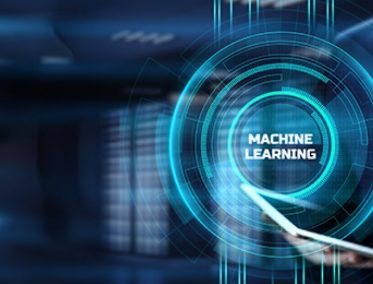TL;DR: Integrating UiPath with cloud platforms like AWS, Azure, and Google Cloud enables businesses to build scalable, flexible, and intelligent automation systems. Cloud deployments empower UiPath to adapt to fluctuating workloads, reduce infrastructure costs, and leverage AI services for smarter RPA workflows. With multiple deployment options, public, private, and hybrid, companies can match their IT and compliance requirements while accelerating digital transformation.
Key Takeaways
- Cloud integration supercharges UiPath scalability: Deploying UiPath on AWS, Azure, or GCP allows automation to scale dynamically with business needs—eliminating infrastructure constraints.
- Multiple deployment models enable flexibility: Public, private, and hybrid cloud models support a range of IT environments, compliance requirements, and modernization strategies.
- RPA meets AI for smarter workflows: Integrating UiPath with cloud-native AI services (like Azure Cognitive Services or Amazon Textract) enables intelligent document processing, image analysis, and natural language automation.
- Improved cost efficiency and remote access: Cloud-based deployments reduce CapEx and empower globally distributed teams to access automation securely and efficiently.
- Faster deployment with managed services: Partnering with experts helps organizations implement UiPath in the cloud with fewer risks, optimized performance, and quicker ROI.
|
Embracing the Power of Automation and Cloud
The convergence between Robotic Process Automation (RPA) and cloud technologies has emerged as a powerful strategy for organizations seeking to enhance operational efficiency, scalability, and flexibility.
Among the leaders in the RPA domain, UiPath stands out as a robust solution for automating repetitive and rule-based tasks, helping enterprises drive value and increase productivity. By integrating UiPath with leading cloud platforms, businesses can elevate their automation capabilities, allowing RPA to scale seamlessly and adapt to changing business needs.
This article will explore how UiPath can be integrated with various cloud platforms, highlighting the benefits of cloud-enabled scalability and flexibility. We’ll delve into the different approaches for deploying UiPath on cloud platforms, examine real-world use cases, and outline the key benefits of combining UiPath’s RPA capabilities with cloud solutions.

UiPath on cloud offers numerous benefits, ranging from improved scalability to reduced infrastructure costs. Traditional, on-premises RPA deployments often face limitations in terms of scaling capabilities, operational flexibility, and maintenance overheads. By leveraging cloud platforms like Microsoft Azure, Amazon Web Services (AWS), and Google Cloud Platform (GCP), UiPath can deliver more agile and efficient RPA solutions.
Scalability and Flexibility
The need for scalability is a primary driver for integrating RPA tools with cloud platforms. Businesses often require the ability to quickly scale up or down their automation infrastructure in response to demand fluctuations. Cloud platforms provide this scalability by allowing organizations to adjust compute resources dynamically without incurring the high costs of maintaining physical infrastructure.
Flexibility is another critical factor. Cloud integration enables RPA bots to be accessible from anywhere, supporting remote and hybrid work models. The flexibility also extends to deployment models, such as hybrid cloud or multi-cloud, which can help organizations optimize performance and costs.
To fully leverage the potential of UiPath, organizations can integrate it with several leading cloud platforms. Let’s explore how UiPath works with some of the major cloud service providers.
1. UiPath on Microsoft Azure
Microsoft Azure is a popular choice for deploying UiPath due to its robust set of services and enterprise-grade security features. UiPath integrates seamlessly with Azure, providing enhanced scalability, performance, and security.
- Deployment with Azure Virtual Machines: UiPath Robots and Orchestrator can be deployed using Azure Virtual Machines, enabling organizations to set up and scale their RPA infrastructure as needed. Azure’s on-demand compute resources make it easy to adjust capacity based on workload requirements.
- Azure Automation and Logic Apps: Azure Automation and Logic Apps can be used to trigger UiPath workflows and orchestrate more complex, multi-step automation processes. For example, Azure Logic Apps can initiate a UiPath process based on specific events, such as receiving an email or an HTTP request.
- Integration with Azure AI Services: UiPath integrates well with Azure Cognitive Services, allowing organizations to combine RPA with AI capabilities. For instance, Azure’s Optical Character Recognition (OCR) can be used within UiPath to extract data from documents, enhancing automation for data entry tasks.
Benefits of UiPath Integration with Azure:
- Seamless scalability with Azure’s flexible compute resources.
- Integration with Azure services, such as Azure AI and Azure Blob Storage, to extend RPA capabilities.
- Enhanced security with Azure’s built-in compliance and data protection features.
2. UiPath on Amazon Web Services (AWS)
Amazon Web Services (AWS) provides a highly reliable and flexible cloud infrastructure, making it an excellent choice for deploying UiPath. AWS offers a wide array of services that can complement UiPath’s automation capabilities.
- Elastic Compute Cloud (EC2) Integration: UiPath can be deployed using AWS EC2 instances, providing dynamic scalability for RPA workloads. AWS Auto Scaling ensures that EC2 instances are scaled based on real-time demand, optimizing resource usage and minimizing costs.
- AWS Lambda for Serverless Automation: AWS Lambda can be used to trigger UiPath workflows in a serverless architecture. This enables event-driven automation, where a specific trigger (e.g., an uploaded file in S3) initiates a UiPath process without requiring dedicated server resources.
- Integration with AWS AI Services: AWS offers a suite of AI services, such as Amazon Textract and Amazon Rekognition, which can be integrated with UiPath to add intelligence to RPA workflows. For example, Amazon Textract can be used to extract text from documents, which UiPath bots can then process and act upon.
Benefits of UiPath Integration with AWS:
- Scalability through AWS Auto Scaling and EC2.
- Event-driven automation using AWS Lambda for efficient resource management.
- Enhanced automation with AWS AI services, providing intelligent data processing.
Google Cloud Platform (GCP) is another powerful cloud platform that integrates well with UiPath, offering a variety of services that enhance the capabilities of RPA.
- Deployment via Google Compute Engine: UiPath Robots and Orchestrator can be deployed using Google Compute Engine, which allows organizations to scale RPA workloads efficiently. Google Kubernetes Engine (GKE) can also be used for containerized deployments, ensuring optimal resource utilization.
- Integration with Google Cloud Functions: Google Cloud Functions can trigger UiPath workflows as part of a serverless architecture, similar to AWS Lambda. This allows for event-driven automation, reducing the need for always-on server resources.
- AI Integration with Google Cloud AI Services: GCP offers a variety of AI tools, such as Google Vision AI and Google Natural Language, which can be integrated with UiPath to enhance automation. For instance, Google Vision AI can analyze images, and the extracted data can be used in downstream UiPath processes.
Benefits of UiPath Integration with GCP:
- Flexibility with containerized deployments via Google Kubernetes Engine.
- Cost-effective automation using Google Cloud Functions.
- AI-powered automation with integration into Google AI services.
Cloud Deployment Models for UiPath
UiPath’s integration with cloud platforms can follow different deployment models, depending on business needs and objectives. Below are some of the common deployment models used for UiPath on the cloud.
1. Public Cloud Deployment
In a public cloud deployment, UiPath is hosted on a cloud service provider’s infrastructure, such as AWS, Azure, or GCP. This approach provides maximum scalability and flexibility, as organizations can leverage the provider’s infrastructure to quickly scale resources up or down as needed. Public cloud deployment is ideal for businesses that want to minimize infrastructure management and reduce upfront capital expenditures.
2. Private Cloud Deployment
A private cloud deployment involves hosting UiPath in a dedicated cloud environment. This deployment model is often used by organizations that have strict data privacy or regulatory requirements. Using private cloud environments, such as those offered by Azure or AWS, organizations can maintain greater control over their infrastructure while still benefiting from cloud scalability.
3. Hybrid Cloud Deployment
Hybrid cloud deployment allows organizations to integrate UiPath across both on-premises and cloud environments. This approach is particularly useful for companies with sensitive data that must remain on-premises while leveraging cloud capabilities for scalability. By using a hybrid model, organizations can benefit from the flexibility of the cloud while keeping sensitive processes and data secure on local infrastructure.
The integration of UiPath with cloud platforms delivers several key benefits that enhance RPA’s value proposition:
- Enhanced Scalability
Cloud platforms provide the ability to scale UiPath’s RPA infrastructure dynamically based on business needs. Whether it’s increasing the number of robots during peak processing periods or scaling back during quieter times, the cloud offers unmatched scalability.
- Cost Efficiency
By deploying UiPath on the cloud, organizations can reduce infrastructure costs. Cloud platforms follow a pay-as-you-go model, allowing businesses to pay only for the resources they use. This helps avoid the high costs associated with purchasing and maintaining physical hardware.
- Improved Accessibility
Cloud integration allows UiPath to be accessible from anywhere, enabling employees to access automation capabilities remotely. This is particularly useful for supporting distributed teams and facilitating a flexible work environment.
- Integration with Advanced Services
Cloud platforms provide access to a wide array of services, such as AI, machine learning, and analytics tools, that can be integrated with UiPath. This enables organizations to build more intelligent automation workflows, incorporating capabilities like natural language processing (NLP), computer vision, and predictive analytics.
- Faster Deployment and Updates
Deploying UiPath on cloud platforms reduces the time required for initial setup and subsequent updates. Cloud platforms provide automation templates and pre-configured environments that simplify the deployment process, allowing businesses to focus on automation development rather than infrastructure management.
Empowering Businesses with Cloud-Enabled UiPath Integration
Integrating UiPath with cloud platforms is a powerful way for businesses to achieve scalability, flexibility, and enhanced automation capabilities. By leveraging the robust infrastructure and services provided by cloud platforms such as Microsoft Azure, Amazon Web Services, and Google Cloud Platform, organizations can elevate their RPA initiatives, streamline processes, and respond to changing business demands with agility. Whether opting for a public, private, or hybrid cloud deployment, the combination of UiPath’s RPA capabilities with cloud infrastructure ensures that businesses are well-equipped to navigate the complexities of modern operations.
As more organizations embrace digital transformation, the need for scalable and flexible automation solutions will only continue to grow. UiPath, integrated with cloud platforms, offers the perfect blend of technology to meet these needs, empowering businesses to thrive in an increasingly competitive landscape.
Frequently Asked Questions (FAQs)
- What are the benefits of integrating UiPath with cloud platforms?
Integrating UiPath with cloud platforms enhances scalability, cost-efficiency, and accessibility. It also allows businesses to leverage cloud-native AI, analytics, and automation services to create more intelligent and adaptive RPA workflows.
- Can UiPath be deployed on any major cloud provider?
Yes. UiPath integrates with Microsoft Azure, Amazon Web Services (AWS), and Google Cloud Platform (GCP). Each platform supports UiPath deployment via virtual machines, serverless functions, and integrations with cloud-native AI services.
- What’s the difference between public, private, and hybrid cloud deployments for UiPath?
- Public cloud uses a third-party provider’s shared infrastructure (e.g., AWS, Azure) for quick scaling and minimal overhead.
- Private cloud offers dedicated resources for compliance or data-sensitive environments.
- Hybrid cloud combines on-premise systems with cloud flexibility, ideal for gradual modernization or mixed workloads.
- Can UiPath integrate with cloud-based AI tools?
Absolutely. UiPath can connect with Azure Cognitive Services, Amazon Textract, Google Vision AI, and others to automate complex tasks like document understanding, image analysis, and language processing.
- Is a managed services provider necessary for deploying UiPath in the cloud?
While not strictly required, working with a provider ensures best practices in architecture design, deployment, scaling, and governance. It also reduces implementation risks and accelerates ROI on cloud automation.




